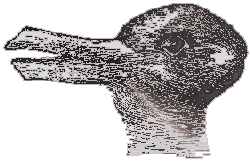 Gregory Eiselein
Gregory Eiselein Gregory Eiselein
Gregory Eiselein
The 100-point final exam will be 100 minutes long. Please bring a blank blue book or blank loose-leaf paper for your answers. You cannot use your books or your notes. There will be two parts to the exam.
Part 1. Identifications. This section will be worth 30 points. I will give you twelve quotations or characters from texts we've read so far this semester. You will need to identify ten of them by providing the name of the author, the title, and a brief explanation of the quotation's significance.
Part 2. Essay Questions. This section will be worth 70 points. I will provide you with questions selected from the following list. You will write essays in response to two of them.
1. This is the first time ENGL 270 has been taught at K-State, but there are plans to offer the course in the future. Which text would you most highly recommend to future teachers of this course? Select one of the text's we've read this semester. Then use your knowledge of the course and its aims, your reading experiences this semester, and your ability to explain a text's value and significance to write an essay that discusses and defends your selection.
2. Use the writing style and attitudes of one the authors in column A to re-tell or summarize the story of one of the texts in column B. Choose whatever combination you wish.
A: Whitman, Williams, Cisneros, Anderson
B: Pulp Fiction, Sula, Little Women, Dance to Death
3. Most of the texts we've read this semester are set in identifiable places in the United States: Los Angeles, Chicago, small-town Ohio, rural Ohio, New Orleans, small-town New England, New York City, etc. Select any two places and compare how the two different authors portray these geographical locales. How do the portrayals differ? How do the authors use setting? How does setting relate to the text's most important themes or concerns in each instance?
4. Imagine that you are a professor of who will be teaching American History: Civil War to the Present. You have room for one literary text on your syllabus. Which of the texts we read this semester would you choose? Explain your selection with specific ideas and references to the text.
5. Consider all the texts we read this semester. Which text most seems to celebrate American life and American culture? Which text seems most critical of American life and American culture? Defend your claims with references to the texts.
6. Imagine that you have been invited by President Wefald to deliver a short Lou Douglas Lecture in Forum Hall on the topic of "Religion and American Literature." In a short talk, you will only have time to discuss with any specificity two writers. Write a draft of your talk that includes specific discussion of at least two of the authors we've studied this semester.
7. Why would an author tell a story in a way that's ambiguous (that is, capable of being understood in more than one way), chronologically non-linear, fragmented, stylistically bizarre, or simply more difficult to understand than straightforward or ordinary writing? Why would an author want to write with care and attention about characters who were not good role models, characters who were strange, corrupted, difficult, angry, disobedient, rebellious, not-normal, sinful, inappropriately passionate, criminal, sad, unsuccessful, violent, unrealistic, vain, poor, misunderstood, greedy, disliked, mistreated, awkward, weird, generally not "good," and so on?
Write an essay that responds to these two questions. To illustrate and defend your answer, use examples from texts we studied this semester. You may use examples from as many texts as you like, but you must use examples from at least two different authors.
8. Imagine that you have a friend taking this identical course at KU (same texts, but different teacher). Your friend has struggled all semester to understand these texts, their complexity and significance. He is now desperately studying for his final, which will include a question on each of the following shorts texts: "My Name" by Cisneros, "The Cranes of Ibycus" by Lazarus, and "Vigil Strange I Kept on the Field One Night" by Walt Whitman (see attached sheet). Thus, he has e-mailed you to ask you to explain these texts to him. You don't have time to explicate all three texts for him, but you do agree to help him out with one of the three texts.
Compose an e-mail that carefully explains your understanding of one of these three texts. Be sure to comment on what the text says, how the text says it, and what the text does or means. I will provide you with a copy of all three texts for the final.
Note: While studying for this examination, please keep in mind that I am looking for your answers to be as specific as possible. Persuasive, informed use of concrete details selected from the works we studied will earn you a lot of points; vague generalizations will earn only a few.
Home | Department of English | Graduate Studies | Cultural Studies | Brain Power | Kansas State University
This page was updated on 8 December 2002. Other pages on this site may have been updated more recently.
These pages are copyright © 1995-2002 Gregory Eiselein.